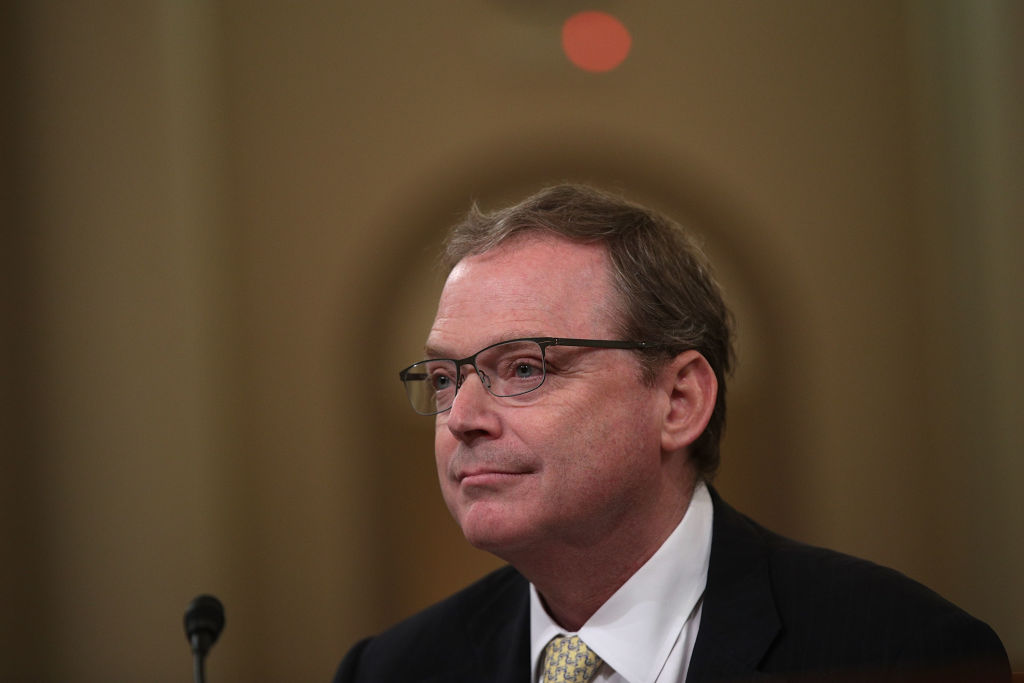When will the Fed cut interest rates in 2024? Here's what experts now say and the impact on your money.
A top question on the minds of investors and consumers alike is when might the Federal Reserve make its first interest rate cut after two years of rapid hikes, which have sent mortgage and credit card rates soaring. But after Tuesday's hotter-than-forecast inflation report, economists have a partial answer: Expect to wait longer.
Even before Tuesday's inflation data, the Federal Reserve had signaled that it would take a cautious approach. Fed chair Jerome Powell told CBS News' "60 Minutes" earlier this month that the central bank wants to have more confidence that inflation is receding "before we take that very important step of beginning to cut interest rates."
The Federal Reserve began hiking rates in March 2022 to battle red-hot inflation, relying on an effective tool to depress consumer spending and tamp down price increases. The central bank's 11 rate hikes since then have helped bring down the annual inflation rate to 3.1% in January from a high of 9.1% in June 2022, but January's number was higher than economists had projected — and remains above the Fed's goal of driving inflation down to 2%.
The Fed is "being very cautious when it comes to its decision making regarding rate cuts," noted Jacob Channel, an economist at LendingTree, in an email. "The reason for this is because they don't want to start cutting prematurely and end up making inflation worse."
January's hot inflation data illustrates the difficulty for the Fed in timing its first cut, he added. "For this reason, if you're convinced that deep cuts are just over the horizon, you might be setting yourself up for disappointment," Channel added.
When will the first cut happen?
Economists have revised their forecasts following Tuesday's sticky inflation report, with many of them now projecting the Fed's first cut will come later in 2024 than they had earlier forecast. In other words, don't hold your breath for a cut at either of its next two meetings, in March and May.
Earlier in the year, most economists pegged the first rate cut of 2024 for the Fed's March 20 meeting. But as of Wednesday, only 1 in 10 continued to forecast a March rate cut.
"The initial market reaction sent expectations for a March rate cut to a below 10% probability — quite a shift after starting the year at 80%," PNC Bank said in a Tuesday investment note.
Likewise, fewer economists are now predicting that the Fed will cut rates at its May 1 meeting. Currently, about one-third are still penciling in a May rate reduction, down from 90% earlier this year.
Instead, you'll most likely need to wait until the Fed's June 12 meeting to see the first rate cut, according to economists polled by FactSet.
"In our view, expectations for rate cuts are, and have been, too aggressive. Our base case does not anticipate rate cuts until closer to mid-year," PNC noted.
What does this mean for your money?
With economists pushing back their rate-cut forecasts to mid-2024, the initial impact was on the stock market, with the Dow Jones Industrial Average falling 525 points, or 1.4%, on Tuesday.
Investors had been pushing stocks higher on expectations that the Fed would soon cut rates, which could lower costs for businesses and spur consumers to spend more — potentially juicing corporate profits.
See Managing Your Money for more information on mortgage rates
- What the latest inflation numbers mean for mortgage rates
- Is a 1% drop in mortgage rates worth refinancing? Experts weigh in
- Why some experts say you shouldn't wait for mortgage rates to fall
For now, borrowers aren't likely to get a break on loan terms anytime soon. Auto loans, credit card rates and other credit products that are based on the Fed's benchmark rate will likely remain at or near their current levels until the first rate cut.
Mortgages are slightly different because they are influenced by the 10-year Treasury yield and economic indicators including inflation.
"When inflation growth is worse than expected, mortgage rates often rise," Channel said. "With that in mind, we may see somewhat higher mortgage rates over the coming weeks."
After a bounce, however, mortgage rates "will most likely settle toward 6% by the year end," predicted NAR chief economist Lawrence Yun in an email.



